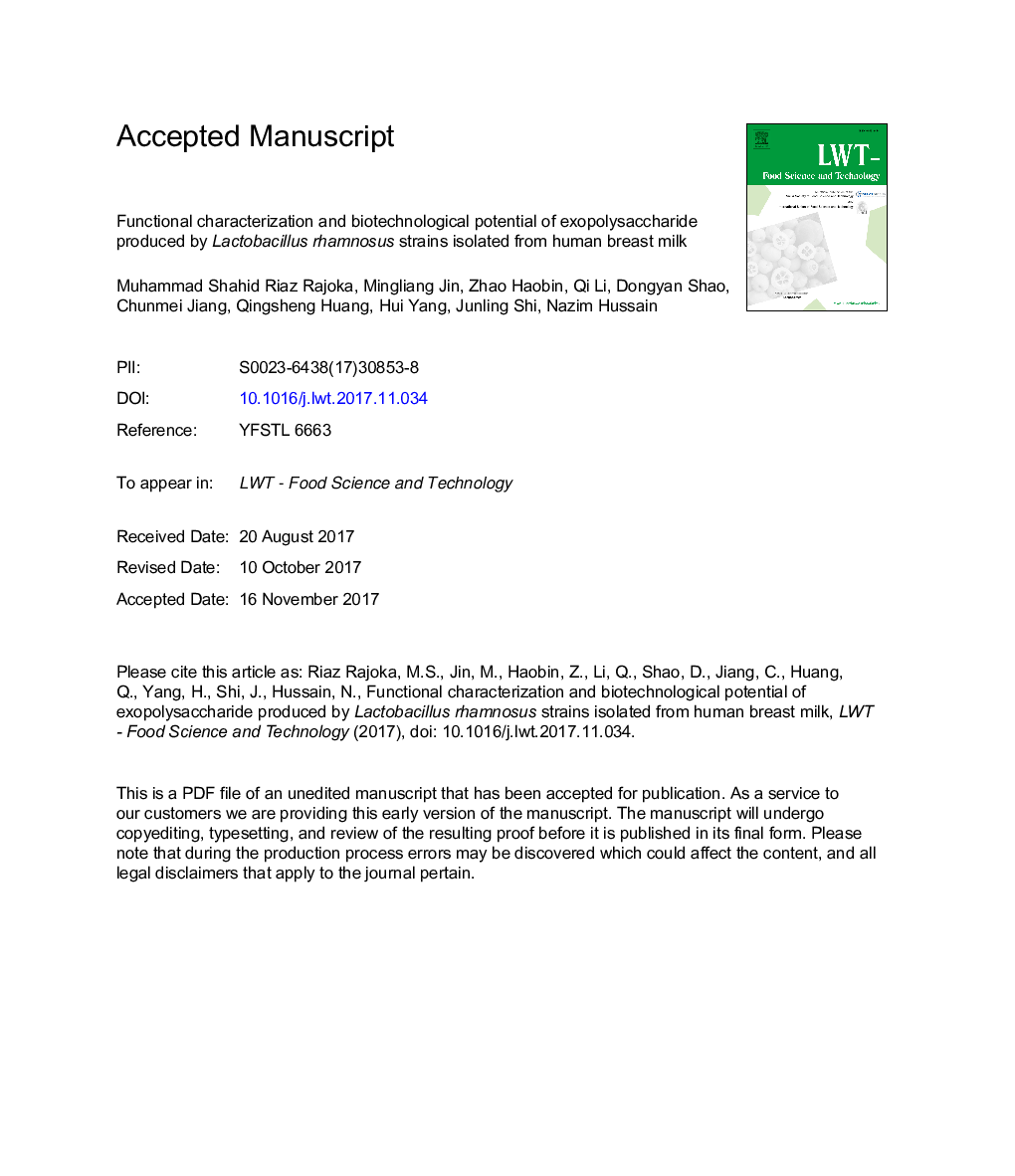| Article ID | Journal | Published Year | Pages | File Type |
|---|---|---|---|---|
| 8892071 | LWT - Food Science and Technology | 2018 | 33 Pages |
Abstract
Microbial exopolysaccharide (EPS) is currently developed as a potential biopolymer due to its unique characteristics, biological activity and safety. EPS of lactic acid bacteria that have been isolated from human breast milk were assumed to possess novel functions due to their uniqueness; however, they have not been extensively characterized before. In order to verify this hypothesis, the functional characterizations and biotechnological potential were conducted on EPSs produced by six Lactobacillus rhamnosus strains from human breast milk. After isolation and purification, the EPS from each strain was separately characterized in production and functional activities in vitro, including flocculating, emulsifying, solubility, antioxidant, antibacterial, and antitumor activities. As a result, the six strains yielded high EPS production (461-737 mg/l) after 48 h of incubation. The EPSs showed flocculating activity of 66-88% and an emulsifying activity of 23-45%. The EPSs varied in characteristics of solubility in water, oil binding, and water holding capacities. The EPSs showed potent antioxidant activity in analyses of hydroxyl radical (50-82%), DPPH radical (40-63%), superoxide anion radical (6-29%), and metal chelating activity (54-73%). Furthermore, the EPSs exhibited antitumor activity against Caco-2 cells (36-54%) at 600 μg/ml and strong antibacterial activities against E. coli (12-14.3 mm) and Salmonella typhimurium (10-13 mm), corresponding to excellent biofilm inhibition activity against S. typhimurium (58-71%) in vitro. The results indicated that the EPSs from Lactobacillus rhamnosus strains isolated from human breast milk have novel functions better than other reported ones, and thus have great potential in food, biomedicine, and pharmaceutics industries.
Keywords
Related Topics
Life Sciences
Agricultural and Biological Sciences
Food Science
Authors
Muhammad Shahid Riaz Rajoka, Mingliang Jin, Zhao Haobin, Qi Li, Dongyan Shao, Chunmei Jiang, Qingsheng Huang, Hui Yang, Junling Shi, Nazim Hussain,
